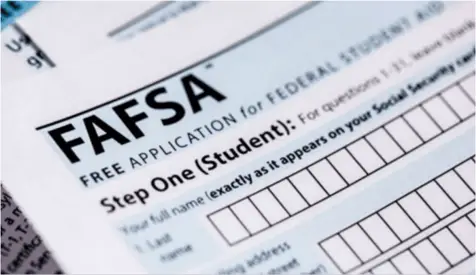Neal Schwartz
- 07 Jan, 2021
- 0 Comments
- 2 Mins Read
HOW COVID-19 IS CHANGING THE WAY WE FINANCE COLLEGE

While the pandemic has taken its toll on everyone, one silver lining is the changes to core Financial Aid submission. According to a recent article in Forbes by Mark Kantrowitz, the FAFSA will be undergoing massive changes in response to the COVID-19 relief bill. According to the FAFSA Simplification Act, financial aid determination will be adapted from both the federal and institutional levels.
However, these changes will not be coming in the near term, but rather will affect the Freshman class of 2023—current high school Sophomores. It will of course have an impact on the earlier classes as Financial Aid is required to be submitted and reviewed each year prior to a student’s college year.
Less questions
While the original FAFSA has 108 questions, the new FAFSA will only have 36. It will also include a question about the applicant’s race or ethnicity.
Changes for divorced or separated parents
In this case, the parent who provides more financial support to the student is responsible for completing the FAFSA, no longer the parent with which the student has lived for the past year.
More transparency on costs
Colleges will now be required to fully disclose the total cost of attendance on the college website, providing parents with a more accurate picture than before.
Income Protection Allowance increased
This will allow a greater percentage of your income to avoid being calculated into the financial aid formula.
In addition, although there has normally been a focus on student financial aid, there has been little awareness of parent financial aid (PLUS loans) and the financial burden that parents undertake when paying for college. According to this article from the NYTimes, a PLUS loan “lets parents of undergraduates borrow money directly from the federal government. Crucially, there is no cap on the size of Parent PLUS loans, other than whatever colleges choose to charge for tuition, books, room and board, or personal expenses. As a result, parent loans are often much larger than student loans. (And, of course, some parents help their children pay off student loans.)” The article goes on to highlight the ability to view some Parent Loan information for each school through the college Scorecard government site. Having this Scorecard data can be helpful in letting parents and students know which colleges might put them the most at risk.
Being aware of the new financial changes to college will help you navigate the ever-changing institution impacted by the pandemic.
Still feeling lost about big college decisions? Give us a call to schedule a free college counseling consultation today!
Best Regards,

Neal Schwartz, Owner
College Planning of Westchester
nschwartz@collegeplanningofwestchester.com
914-273-2353 (office)
914-500-5899 (mobile/text)
NOW IN OUR 19TH YEAR

NOW REGISTERING FOR OUR:
COLLEGE COUNSELING PROGRAM AND SAT/ACT TEST PREP PROGRAMS
NOW IS THE BEST TIME FOR TEST PREP AND COLLEGE APPLICATIONS
Register Today








